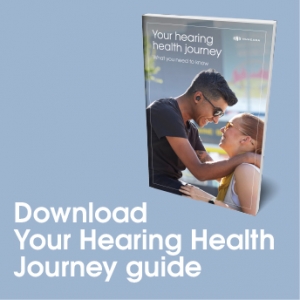
When a person has tinnitus, it means he or she hears a buzzing or ringing in the ears that other people can’t hear. The unwanted sounds can last all day and night for some people. Today there are increasing number of tinnitus sound therapy devices and applications in use to manage and alleviate symptoms.
For example, sound therapists are expressing hope about a new sound-emitting device worn in the ear during sleep that helps to train the brain to ignore the annoying sounds. Early feedback has been promising with people who wear the device reporting that it seemed to help and may train the brain to ignore the annoying chronic ringing.
Tinnitus sufferers wear this device primarily at night. Usage during sleep is instrumental in teaching the brain to ignore sounds it doesn’t want to hear. Before wearing the inner-ear device for the first time, participants work with software to choose sounds most like ones they heard in their ears. The sound therapy devices then play back those same sounds during sleep until users adjust to them and eventually can tune them out.
Mobile Applications For Tinnitus Relief
There are also numerous sound therapy applications designed for tinnitus management. These applications play calming or soothing sounds and designed to mask ringing in the ears. Individuals use the apps with traditional wireless earbuds or hearing aids for tinnitus relief.
IQbuds2 MAX & Oto App Bundle
Get a free 12-month subscription to the leading Tinnitus Management app with IQbuds2 MAX!
IN STOCK READY TO SHIP
Below is a list of currently available applications that people suffering from this condition may wish to try. In a 2016 study conducted by the National Institutes of Health, 675 people tried several different apps. They assigned an average rating of 4.2 of 5, indicating satisfaction with how the app helped with their tinnitus.
Here are just some of the smartphone applications currently available on Android, iOS, or both:
Audio Cardio
A mobile app that delivers a data and science backed sound therapy designed to maintain and strengthen your hearing by stimulating the cells inside your ear. iOS App Store | Google Play
Beltone Tinnitus Calmer
This app distracts users from tinnitus sounds by providing relaxation and sound therapy exercises. iOS App Store | Google Play
myNoise
Users hear a combination of binaural beats, rain noise, and white noise with this app. iOS App Store | Google Play
Relax Melodies
This app uses melodies and sounds chosen by the user to help them sleep better. iOS App Store | Google Play
Oto
Oto is an app that combines science-based tinnitus therapies such as cognitive behavioural therapy, targeted mindfulness and sound therapy. iOS App Store | Google Play
Relax Noise 3
This disguises the buzzing and ringing sounds of tinnitus with pink, red, or white noise. Google Play
ReSound Tinnitus Relief
Like Beltone Tinnitus Calmer, this app distracts tinnitus sufferers with sound therapy and relaxation exercises. iOS App Store | Google Play
SimplyNoise
This app features brown sound or white noise to provide users with a more pleasant listening experience. iOS App Store | Google Play
Neuromonics OasisCloud
Modified music coming through this app retrains the brain to not hear the buzzing and ringing sounds or have a reaction to them. iOS App Store
Tinnitus Therapy Lite
This app incorporates customizable sounds as sound masking and sound therapy to make the tinnitus sounds less obvious. iOS App Store | Google Play
Whist
Users choose balance, noise level, pitch, and volume to create a customized sound profile. iOS App Store | Google Play
White Noise Lite
This app pulls sounds from the environment to allow users to listen to more relaxing sounds. iOS App Store | Google Play
Music For Tinnitus: Symptom Management with Music Therapy
Music therapy is another option available to tinnitus sufferers to help reduce or eliminate their symptoms. After finding a playlist online, they can request the removal of sounds that bother them the most. The benefit of listening to a playlist of adjusted music is that it helps to reorganize the brain’s auditory cortex.
This is the area of the brain that perceives sound. People who participated in a music therapy study by listening to music without the bothersome sounds reported a significant decrease in symptoms. The typical participant listened to the music for 12 hours a week.
Since the original research study, several companies have created automated software that can customize sounds in a user’s own playlist. Smartphone apps such as AudioNotch make it easy for tinnitus sufferers to find their own tones and adjust the music accordingly.
Click here to learn more about how Nuheara customers are using their earbuds to manage or mitigate their tinnitus symptoms.


